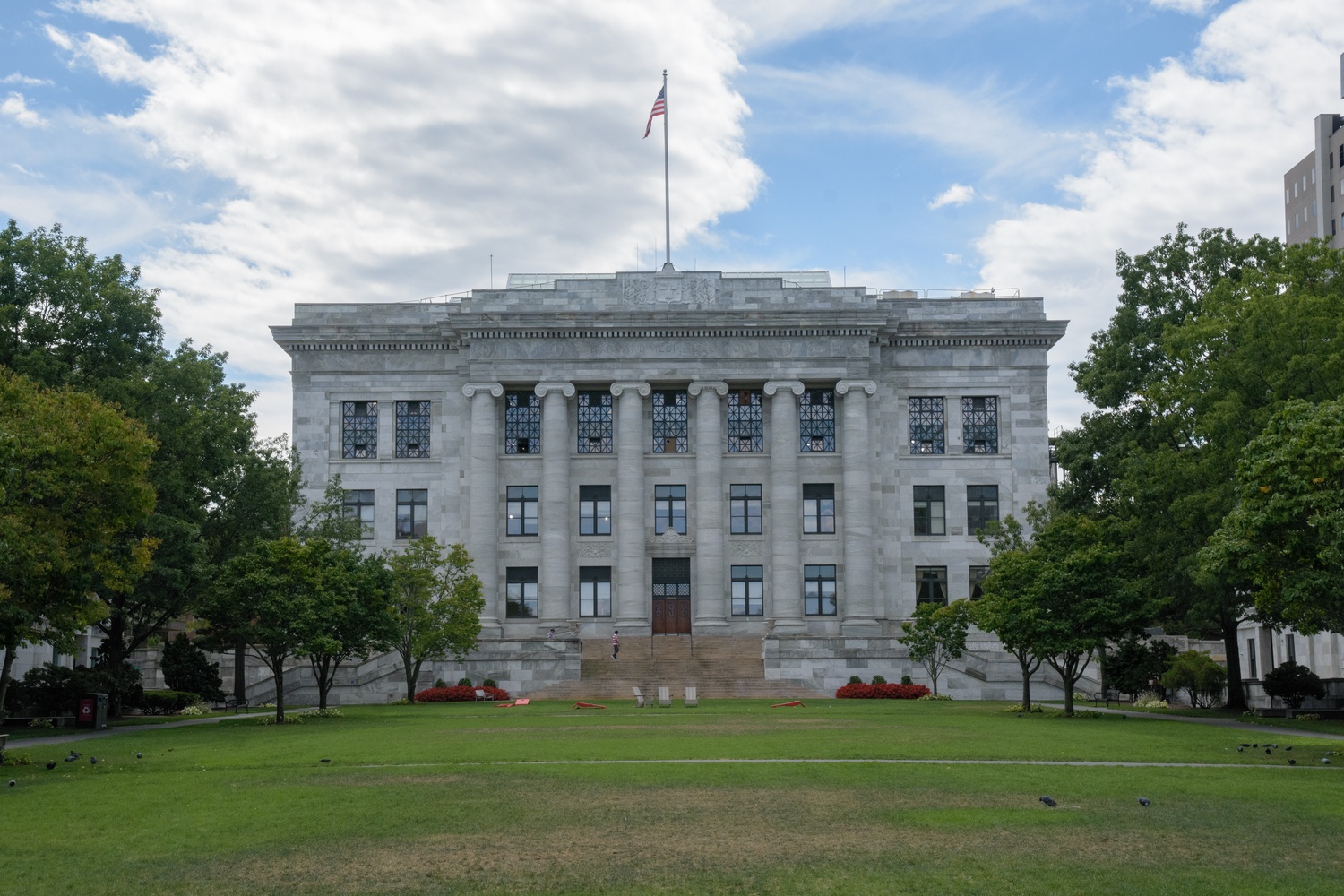
News
Harvard Grad Union Agrees To Bargain Without Ground Rules

News
Harvard Chabad Petitions to Change City Zoning Laws

News
Kestenbaum Files Opposition to Harvard’s Request for Documents

News
Harvard Agrees to a 1-Year $6 Million PILOT Agreement With the City of Cambridge

News
HUA Election Will Feature No Referenda or Survey Questions
12 Harvard Professors Elected Into the National Academy of Medicine

Twelve Harvard professors were elected into the National Academy of Medicine, one of the highest honors in health and medicine, per a Monday press release.
Part of a cohort of 90 U.S.-based and 10 international electees, the academics represent “the most exceptional researchers and leaders in health and medicine, who have made significant breakthroughs, led the response to major public health challenges, and advanced health equity,” NAM President Victor J. Dzau said in the Academy’s press release.
The group includes Harvard Medical School professors Paola Arlotta, Jonathan F. Bean, Bob S. Carter, Patricia C. Dykes, Marcia C. Haigis, Massimo Loda, Nicole Maestas, David Pellman, Olivier Pourquié, and Hao Wu, as well as Harvard Law School professor I. Glenn Cohen and Harvard Business School and Harvard Kennedy School professor Leemore Dafny. Inductees were chosen by current members during the Academy’s annual meeting, bringing the total to more than 2,400 members worldwide.
Established in 1970, NAM works alongside the National Academy of Sciences and the National Academy of Engineering to provide health, science, and policy guidance to the national government. The three Academies additionally promote research, education, and a public understanding of STEM.
Haigis, a professor of cell biology, said finding out she had been elected into the Academy was “surreal” and “an incredible privilege.”
“I felt really grateful to the wonderful people I’ve had a privilege of working with,” she said. “Because this is really a recognition of all of their efforts and hard work and dedication.”
While many members were elected for their work towards the advancement of medical science, Dafny — a professor of business administration at HBS and professor of public policy at HKS — researches “competition in healthcare markets” and the “effects of different actual or potential policies on how well the markets function and on the effects on downstream patients and businesses,” she said.
Some of the professors’ research is widely used in healthcare facilities.
Dykes, a professor of medicine, helped develop a fall tips program, “which is the largest evidence based program for fall prevention that’s used in hospitals across the United States,” she said.
The program “helps nurses identify the patient’s personal fall risk factors, and then it helps them develop a personalized fall prevention plan to reduce falls while they’re hospitalized, and it engages the patients and family in that process,” Dykes added.
In a different corner of the Longwood campus, pathology professor Pourquie studies muscle restoration and diseases like scoliosis, and Bean, a professor of neurobiology, develops “models of care that help allow older adults to live independently as long as possible.”
A professor emeritus in Pathology at HMS, Loda said he was excited to join “an even broader network of people doing amazing work.”
Loda — who cites teaching as “one of the most important things I do” — added that he is also “really excited about the possibility of being a conduit or node for connecting my students, my colleagues here at Harvard, and some of the great work being done elsewhere.”
Several newly-elected Harvard professors said they view the partnership with NAM as an opportunity to expand their impact on medicine and public health by leveraging the powerful network afforded by the Academy.
“I think one of the important parts of the National Academy of Medicine is that they have huge social impact on human health and recommendations to the government,” Pellman, professor of cell biology and pediatrics, said. “That’s immensely important, and I would be interested to learn more about how I might be able to contribute to that effort.”
Want to keep up with breaking news? Subscribe to our email newsletter.
Most Read
- Harvard Dismisses Leaders of Center for Middle Eastern Studies
- Harvard Agrees to a 1-Year $6 Million PILOT Agreement With the City of Cambridge
- FAS Dean Asks Center Directors To Show Compliance With Viewpoint Diversity Guidance
- 2 Years After Affirmative Action Ruling, Harvard Admits Class of 2029 Without Releasing Data
- Adams House Resident Dean Issues Warning to Student Who Booked Room for AFRO Event
